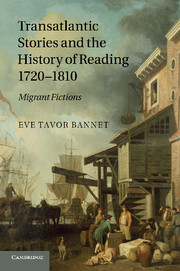PART I - “POOR MAN'S COUNTRY”
Published online by Cambridge University Press: 05 July 2011
Summary
INTRODUCTION
Several influential prose narratives first emerged in England between 1719 and 1727 as immediate critical responses to Defoe's Robinson Crusoe. Neglected or dismissed by modern critics, but exceptionally popular both in Britain and in America well into the nineteenth century, these narratives provided British, and later American, readers with important alternative representations of the Atlantic world. Unlike Defoe's novel, Crusoe epitomes, Chetwood's Captain Boyle, Aubin's Noble Slaves, and Longueville's The Hermit spoke to an England – and later to an America – which had not yet achieved its future strength either as a well-forged nation or as an imperial power. They told of mariners, merchants, servants and female travelers who had to venture out into a brutal Atlantic world still dominated by other nations, without adequate navies, protective convoys, or security of tenure in colonized lands. Rather than exemplify the “colonial mastery of the West,” their images of “extended subjugation and individualist triumph” as often as not involved their protagonists' subjugation as white slaves, and survival, escape or gain against great odds. Written after the Peace of Utrecht, Britain's first great victory over her imperial rivals, many of these stories tactfully presented themselves as historical: Crusoe epitomes, Captain Boyle, Noble Slaves and The Hermit placed the events they recounted before 1713. But in incorporating and addressing elements of Barbary and Indian captivity narratives as well as of mariner, pirate and corsair tales, they also intimated that for ordinary mariners, voyagers, sojourners and commercial adventurers, little had in reality yet changed.
- Type
- Chapter
- Information
- Transatlantic Stories and the History of Reading, 1720–1810Migrant Fictions, pp. 21 - 24Publisher: Cambridge University PressPrint publication year: 2011



